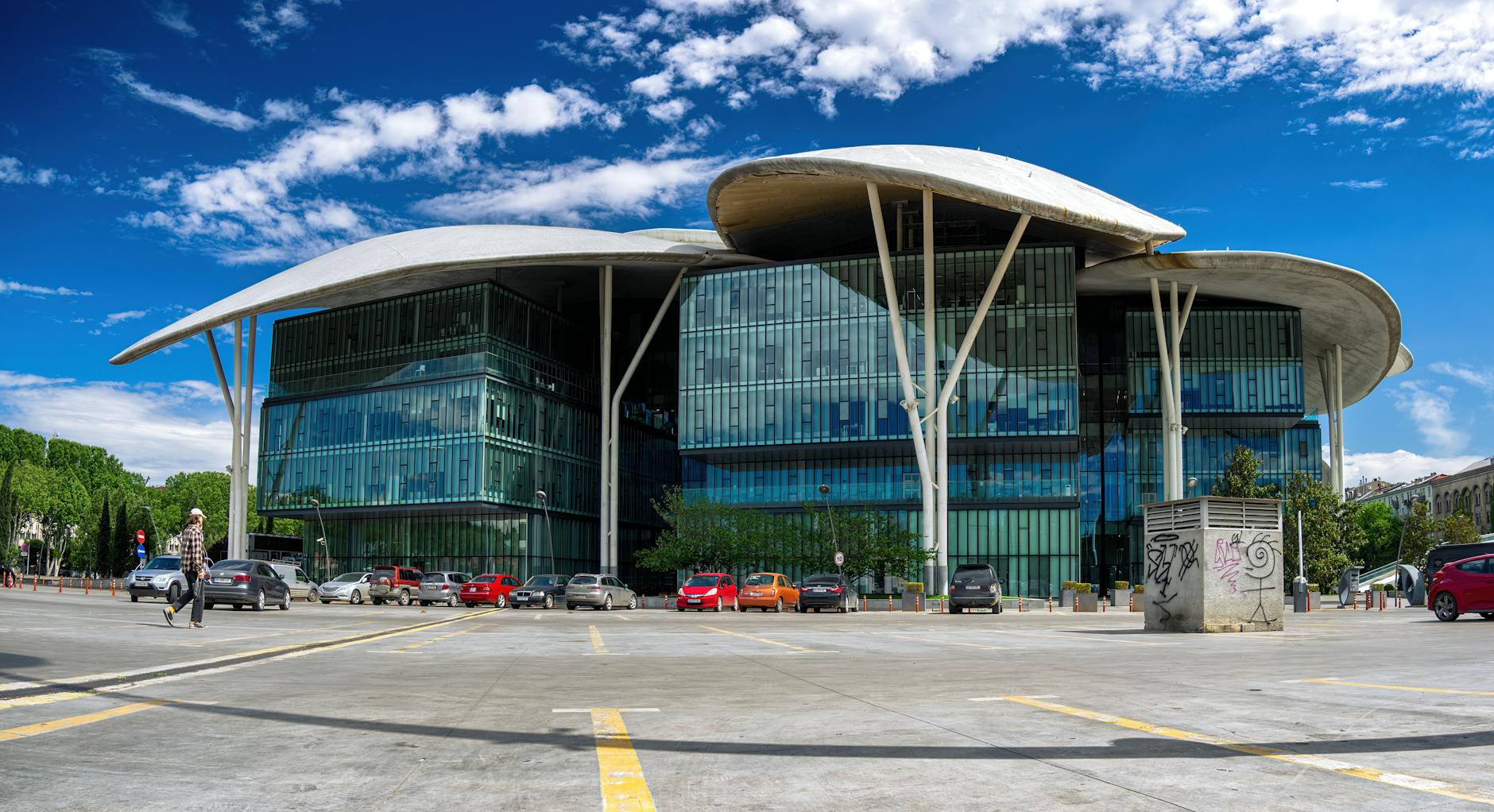How to Navigate Third-Party Logistics Partnerships in Australia

Evaluating Logistics Needs
Identifying Operational Requirements
Navigating through the labyrinth of logistics demands sharp attention to detail, especially in a vibrant ecosystem like the Sydney Startup Hub. Understanding your operational needs isn't just about keeping the wheels turning—it's about being proactive and precise. To start, evaluate the current third party logistics capabilities and ask critical questions concerning their alignment with your strategic goals. What sort of pace do your operations require? Are there particular supply chain elements that demand more focus? Download real-time data reports to see where operations are smooth and where friction occurs.
Pinpointing Bottlenecks
In identifying bottlenecks, think of yourself like a detective. Each delay or hiccup in your supply chain is a clue that needs solving. Evaluate areas like inventory levels, warehouse efficiency, and shipment scheduling. Tools such as process mapping can highlight where your 3PL provider may struggle, often in parallel with what’s buzzing in the networking hotspots around Pyrmont Bay.
Forecasting Inventory Demands
Forecasting isn't just about anticipating the future—it's about creating it. Factor in seasonal fluctuations, market trends, and potential demand surges. Ensure your 3PL Brisbane partner has the capacity for flexibility in peak times. Using predictive analytics, make well-informed decisions early so that your operations flow smoothly no matter the demands. A detailed comprehension of forecast models and flexibility needs is essential for a resilient supply chain.
Focusing on these areas will help you tackle entrepreneurial challenges head-on, empowering you to innovate and effectively manage logistics with precision and poise.
Choosing a 3PL Partner
Assessing Capabilities and Services
When hunting for a 3PL partner, evaluating their capabilities and services is crucial. As many entrepreneurs in the vibrant tech community in Surry Hills will attest, honing in on a partner that enhances your logistics needs can significantly streamline your order fulfilment process. Start by assessing if the 3PL provider can handle the volume and peaks your business experiences. Ensure they offer a range of services, including warehousing, transportation, and value-added services like packaging. Tailor your choice with an eye for scalability—your ideal partner should support future growth.
Analyzing Cultural Compatibility
Cultural compatibility shouldn't be underestimated. The startup ecosystem at Sydney Startup Hub often highlights how misalignment in this area can strain business relationships. Assess if your 3PL partner shares similar values, communication styles, and commitment to customer service. Compatibility ensures smoother collaboration, and like any successful networking hotspot around Pyrmont Bay, it's about building rapport and trust. Conversations and reference checks can reveal if this potential partner’s ethos matches your company’s objectives.
Conducting Due Diligence
Conducting thorough due diligence is non-negotiable. Imagine trying to coordinate a seamless third party distribution process without reliable data—it's a logistics nightmare! Scrutinise potential partners’ financial stability, dispute resolutions, and reputation via industry forums and professional logs. Reliability is paramount, and due diligence helps prevent unforeseen disruptions. With a solid partner, you’ll navigate the dynamic world of logistics with the confidence and agility that's as bustling as Sydney itself.
Building Effective Partnerships
Establishing Clear Communication Channels
In the bustling environment of logistics, particularly for those of us navigating the vibrant tech community in Surry Hills, clear communication is vital. When building partnerships with third-party logistics providers 3PL, it's important to set up robust systems to manage timely updates and expectations. Real-time communication platforms can transform processes by minimising the miscommunications that Liam, with his extensive logistics experience, aims to avoid. Regular meetings, perhaps at a networking hotspot around Pyrmont Bay, could foster stronger ties and ensure that all parties are aligned on objectives and timelines.
Setting Measurable KPIs
Establishing measurable Key Performance Indicators (KPIs) is not merely a recommendation but a necessity in this line of work. These indicators act as the backbone, guiding operations and ensuring that everything from delivery times to inventory management is not only on track but also continuously improving. As someone like Liam would appreciate, these KPIs enable data-driven decisions, a cornerstone of effective logistics management. Attention should be given to metrics that genuinely reflect performance and align with the broader strategic goals of the logistics operation.
Implementing Collaborative Technologies
Integrating technology is no longer optional; it's imperative. In today's logistics landscape, collaborative technologies enhance efficiency and transparency. Systems like warehouse management software and real-time tracking solutions can help oversee every step of the logistics chain, ensuring accuracy and timeliness. For entrepreneurs setting the pace at the Sydney Startup Hub, adopting these tools can position them favourably in a competitive market. Engaging with a reliable 3PL partner who excels in these technologies can provide an edge and lead to innovative solutions.
Overcoming Common Logistics Challenges
Managing Supplier Delays
Supplier delays are an inevitable hurdle in logistics, challenging the precision that professionals like us strive for. These delays can disrupt entire supply chains, creating a ripple effect extending beyond the warehouse to customer satisfaction. My approach to mitigating these delays begins with establishing robust relationships with reliable suppliers. Consistent communication is vital—arranging regular check-ins and updates can preempt many issues before they escalate.
Flexibility is another key tool. Having contingency plans in place allows for swift adaptation to supplier hiccups without throwing the entire system into chaos. For instance, diversifying and maintaining relationships with multiple suppliers can provide the breathing space needed during unexpected delays.
Adapting to Market Fluctuations
Given the unpredictable nature of markets, adaptability is vital. This involves closely monitoring market trends and adjusting logistics operations accordingly. Tech platforms can predict trends, considering factors such as seasonal demand spikes or sudden drops in consumer interest, which can reshape supply strategies. The heart of these adjustments lies in efficient pick packing processes, which must remain agile yet precise.
Integrating Seamless Communication
Finally, communication is the lifeline of logistics. To keep operations smooth, especially in the midst of challenges, employing advanced communication technologies is critical. Real-time updates and streamlined information sharing between all stakeholders—from suppliers to end customers—ensure that everyone stays informed and ready to act. This proactive strategy is crucial, allowing logistics systems to react with speed and precision, exemplifying the vibrant tech community in Surry Hills.
Embracing Excellence in Logistics
The Power of Continuous Process Improvement
Let's dive into the vibrant tech community in Surry Hills, where startups constantly challenge the status quo. The key to thriving amid the chaotic flow of logistics is by embracing continuous process improvement. This isn't just about making tweaks but reimagining processes from end to end. When you align your logistics with new digital solutions, it allows your team to move swiftly, akin to a nimble Sydney cyclist navigating the bustling streets. Examine workflows critically, identify redundancies, and leverage emerging technologies to keep pace with a rapidly evolving market.
Prioritising Feedback Loops
Engaging in open dialogue with your logistics partners is vital. Much like the dynamic networking hotspots around Pyrmont Bay, feedback loops are fertile grounds for new ideas and rapid problem-solving. Create an environment where both praise and constructive criticism flow freely. This leads to genuine insights and innovation. For our logistics operations, the integration of feedback mechanisms ensures you're constantly refining strategies in response to real-time challenges and opportunities.
Commemorating Your Logistics Wins
In the bustling startup ecosystem at Sydney Startup Hub, there's something magnetic about celebrating each milestone. Whether you've negotiated a major contract, enhanced delivery timelines, or simply met your quarterly goals, taking time to acknowledge and celebrate these victories is an integral part of fostering a spirited and motivated team. Not only does this boost morale, but it also demonstrates the tangible results of overcoming logistical hurdles. Remember, the true art of celebration lies in fueling the fire for future success.


